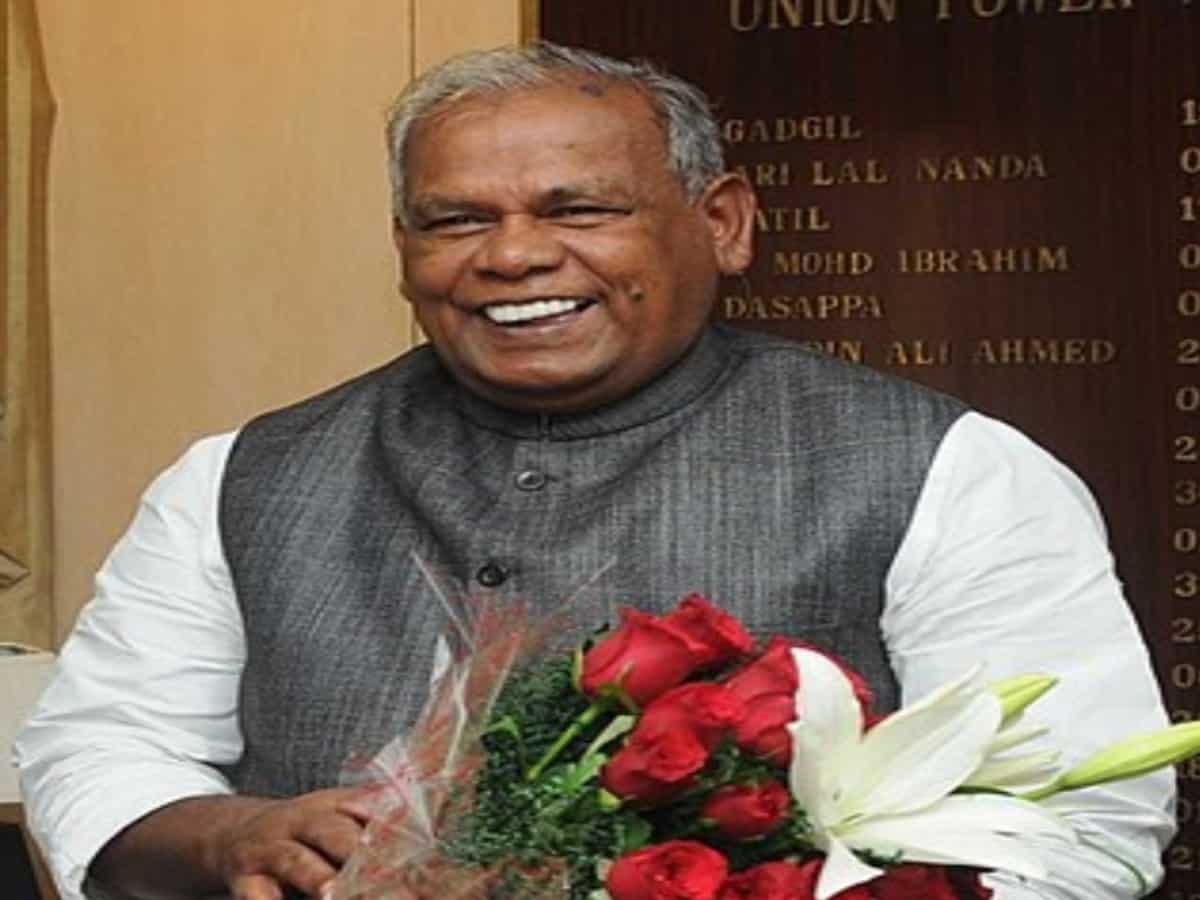
Patna: Hindustani Awam Morcha (HAM) president Jitan Ram Manjhi on Wednesday accused the Nitish Kumar government in Bihar of working against the interest of common people.
Unable to put up with this ‘mismanagement’, he said his son Santosh Kumar Suman was forced to resign from Nitish cabinet and quit the Mahagathbandhan, the former chief minister added.
“Due to illogical sand and liquor policies, the financial structure of Bihar has almost collapsed hitting the poor the most. I raise this point in every public meeting and in Assembly. Our party members questioned me on my association with the ‘anti-people’ government. Finally, I gave in to the people’s demand and decided to quit the government,” Manjhi said.
He asserted that there is “complete democracy” in his party. “We organised the executive committee meeting in Rajgir a few weeks ago and met Nitish Kumar besides his MLAs.”
During the meeting, the chief minister was advised to revisit the sand and liquor policies but he refused point blank. They were then asked to either merge the party with JD(U) or leave the Mahagathbandhan. “I then convened the party’s core committee meeting of the party where we unanimously decided to leave Mahagathbandhan,” the HAM leader said.
Now, there is a national executive committee meeting on June 18 to decide the future course of action, he stated.
“Personally I respect every leader be it Lalan Babu or Tejashwi Babu or Nitish Babu. I could become the chief minister of Bihar only because of Nitish Kumar. But now it is a matter of people’s interest. Hence, I was forced to take the tough decision of leaving Mahagathbandhan,” Manjhi said.
Reacting to Manjhi’s stand, Deputy Chief Minister Tejashwi Yadav said, “I am yet to see his statement but he is a senior leader and can say anything. We always respect him. As far as the work is concerned, it’s up to the people of the state to decide. If we analyse, a large number of works are completed.”



